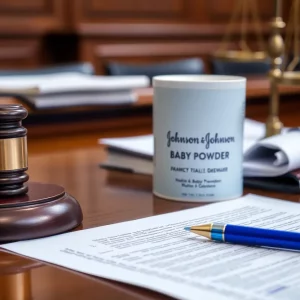North Charleston Hosts Town Hall on the Death Penalty
On a sunny Saturday afternoon, the city of North Charleston, South Carolina, prepares to open its doors to a heartfelt event that aims to spark meaningful dialogue about one of the most challenging issues of our time: the death penalty. A Journey of Hope town hall event, organized by the South Carolinians for Alternative to the Death Penalty, is scheduled to take place at the Cokesbury United Methodist Church at 4 p.m. It promises to be a platform for powerful stories and conversations surrounding capital punishment.
Sharing Stories of Survival and Loss
The event will feature moving testimonies from individuals whose lives have been deeply affected by the death penalty. One of the key speakers is Yvonne Patterson Johnson, a retired nurse and mourning sister of Raymond Patterson, who is also slated to speak. Their stories capture a range of emotions, from survival and resilience to heart-wrenching loss. Both Yvonne and Raymond Patterson’s lives changed drastically due to the death penalty, with Raymond having spent a staggering 37 years in the prison system—22 of which were spent on South Carolina’s death row. Now a resident of Myrtle Beach, he dedicates his life to community engagement and mentoring young people.
A Call for Community Engagement
Event organizers are hopeful that this town hall will inspire attendees to engage in “hard conversations” about the realities of capital punishment. With South Carolina having recently resumed executions after a significant pause of 13 years, this conversation feels more urgent than ever. The state has faced challenges in procuring the drugs necessary for lethal injections, leading to legislative changes that allow condemned inmates to choose **between lethal injection, the firing squad, or the electric chair.** This adds an *additional layer of complexity* to an already emotional subject.
The Shift in Execution Protocols
To adapt to changing conditions, South Carolina is now executing inmates using a new protocol that employs only the sedative pentobarbital. This shift means that the state is aligning itself with federal execution methods. It’s worth noting that the state was previously looking into using a firing squad after running out of lethal injection drugs. The move to secrecy, including the passing of a shield law to protect drug suppliers, was necessary for the state to resume executions.
Recent Developments
The first inmate to be executed under the new law was Freddie Owens, also known as Khalil Divine Black Sun Allah, who faced lethal injection on September 24. His request for a commutation to life imprisonment was denied by the state’s governor. The next in line for execution is Richard Moore, who has been sentenced to death for a crime committed in September 1999.
Before these recent developments, the last execution carried out in South Carolina occurred in May 2011. In total, the state has executed 43 inmates since the resumption of the death penalty in the United States in 1976. During the early 2000s, South Carolina was averaging three executions per year, placing it among the top states in capital punishment.
Bringing Communities Together
While the statistics and methods surrounding capital punishment can feel cold and distant, events like the Journey of Hope town hall aim to humanize the discussions. As people gather at Cokesbury United Methodist Church, the hope is that individuals will leave with not only information but also a deeper understanding of the complexities and real-life impacts of the death penalty in their community.
In an era where discussions about reform and justice continually evolve, this town hall serves as a reminder of the importance of listening to personal stories. We can only hope that the voices shared this Saturday will foster compassion, understanding, and perhaps initiate a greater change in our justice system.



























